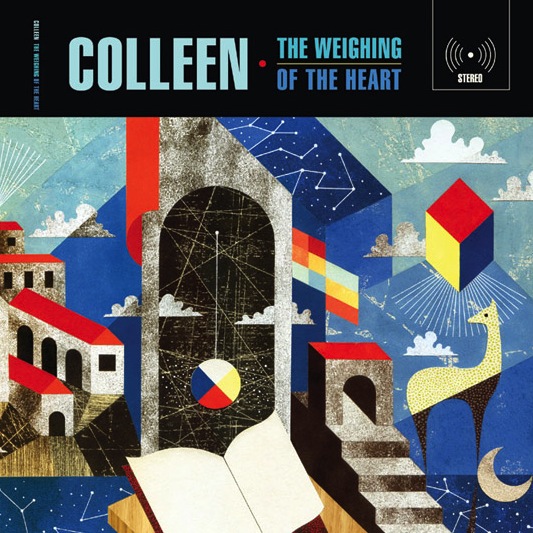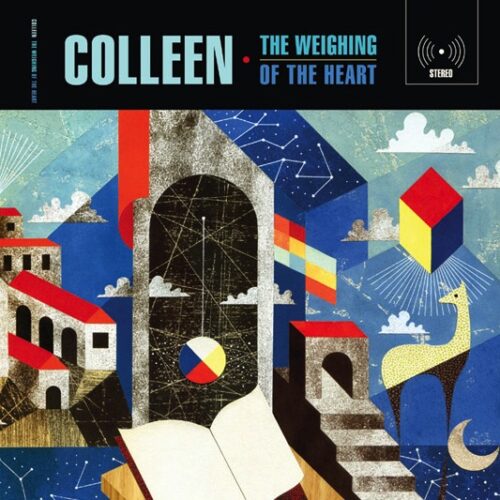To listen to a Colleen album is to take a deep breath and release it as slowly as you possibly can, to quieten your mind, to still the world around you and your beating heart. That this, Cécile Schott’s fourth release, should suddenly emerge from a six-year silence then seems entirely logical. And like that rare friend you’ve known forever but seldom see, a first listen sets you right back in the goodness, hardly any time at all has passed and nothing has been lost or dulled.
Click here to listen and buy on eMusic
The Weighing Of The Heart is a thoroughly visual ride – each track a song and a story, with distinct movements, crucial pauses and bright, startling twists and turns. Schott’s compositional skills have vastly expanded since Les Ondes Silencieuses was released in 2007, but that viola-da-gamba-infused opus more than hinted at this depth of possibility. First there’s the singing. Then there’s the rhythm. And mostly there’s the dominant overarching sense of everything being deliberate, in its right place, essential and alive. Schott has come to singing in something of a counter-cultural fashion – no guts, no belting, no drama. Her voice is on an equal footing with the guitar, clarinet, piano, toy gamelan, frame drum and other instruments she deploys.
The album’s lyrics weave a cosmology of sorts, its main protagonists a raven, the great bear in the Northern sky, a seashell, the shore, the wind, birds sleeping, grass overhearing and clouds exploding into rain. With multiple layered vocal tracks, she works these words into chord progressions and rhythmic phrasing that is taught and graceful, dry and lush. ‘Break Away’ is only voice and those two words, "break away". There might be something of Camille’s vocal sampling in the repetitive umming beat, but brought front and centre and stripped of all theatricality, it lends to the song a pulsing urgency and a simplicity that is impressive. Similarly, ‘Geometría Del Universo’ is a plucked-strings melody played in almost a single breath, without other instrumentation or effect. It rushes and sways, like some ancient dance, a repeated high note in the second part repeatedly catching; raw and masterful at the same time.
Other tracks are more opulent in their orchestration – ‘Moonlit Sky’ opens with clarinet and strummed guitar and "They’ve only left the wind, the wind, the wind, for you and me…". The clarinet arrangement feels old fashioned, recalling more Eric Satie’s soundtrack for the slow-motion running sequence in René Clair’s Entr’acte than any contemporary wind section. And it culminates in 1:36 of frank, out-there organ, a curveball that makes you sit up straight and blink.
It is on ‘Breaking Up the Earth’ that you most tangibly feel the Arthur Russell influence Schott has spoken of in interviews about this release. But somehow here too, you’re drawn back to unique, bygone days, twice removed from Russell’s 19890s-NYC-tinged World Of Echo. Maybe it’s the hummed choral lines with their medieval inflections, maybe it’s the Zorba-the-Greek style echoing classical guitar, maybe it’s the simple thudding drumming, earthy and minimal. Schott’s work here takes you to all sorts of places while all the while keeping your focus firmly hooked on the music, this beautiful music, at hand.



